Arauco Olive Oil, one of the kind with a unique expression
Five Varieties of Olive and olive Oil
Green Crops
Free Chemicals
Healthy Heart
Promising a better life
Made with 100%
Organic Olives
Bulk Olives
We are capable to supply high demands of olives to over 27 countries.
12 Benefits of Olive Oil
White Label
12 Benefits of Olive Oil
Olives are a high-fat fruit that are full of beneficial compounds. With a deep mythological history, they were—so the story goes—a gift to humankind from the Greek goddess Athena.
There are hundreds of varieties grown worldwide, and they all have a unique appearance, taste, and texture. However, like most people, you probably only know two types of olives: “green” and “black.”
1. Rich in Healthy Fats
- Olive oil is primarily composed of monounsaturated fats, particularly oleic acid, which is a heart-healthy fat. These fats help lower bad cholesterol (LDL) while increasing good cholesterol (HDL).
2. Heart Health
- Studies have shown that consuming olive oil can reduce the risk of heart disease. Its high antioxidant content, particularly polyphenols, may help lower blood pressure, reduce inflammation, and improve overall vascular health.
- The Mediterranean diet, which includes generous amounts of olive oil, is associated with a lower risk of heart disease and stroke.
3. Anti-Inflammatory Properties
- Olive oil contains oleocanthal, a compound that has been shown to have anti-inflammatory effects similar to ibuprofen. Chronic inflammation is linked to many diseases, including arthritis, heart disease, and even cancer.
4. Antioxidant-Rich
- Olive oil is packed with antioxidants, such as vitamin E, polyphenols, and carotenoids. These antioxidants help protect your cells from oxidative stress and free radical damage, which can contribute to aging and diseases like cancer.
5. Improves Skin Health
- Due to its antioxidant and anti-inflammatory properties, olive oil can help improve skin health by fighting off signs of aging, reducing wrinkles, and providing moisture. It’s often used in skincare products to keep skin hydrated and promote a youthful appearance.
6. Weight Management
- Despite being calorie-dense, olive oil may help with weight management. Studies suggest that people who consume olive oil as part of a balanced diet (like the Mediterranean diet) are less likely to suffer from obesity and may have an easier time managing their weight.
7. May Help Prevent Type 2 Diabetes
- Olive oil may reduce the risk of type 2 diabetes by improving insulin sensitivity. Its healthy fats, antioxidants, and anti-inflammatory compounds can all contribute to better blood sugar regulation.
8. Supports Brain Health
- Olive oil contains compounds that may protect the brain from age-related diseases like Alzheimer’s. The polyphenols in olive oil help protect brain cells from oxidative stress and inflammation, which can damage neurons and contribute to neurodegenerative conditions.
9. Promotes Digestive Health
- Olive oil can aid digestion by promoting the secretion of bile, which helps with the breakdown of fats. It also has a mild laxative effect, which can help alleviate constipation.
10. Anti-Cancer Properties
- The antioxidants and anti-inflammatory compounds in olive oil may help reduce the risk of certain cancers, particularly breast cancer. Studies suggest that the consumption of olive oil is linked to a lower risk of cancer, possibly due to its polyphenols, which can inhibit the growth of cancer cells.
11. Supports Liver Health
- Olive oil may help protect the liver from damage due to its anti-inflammatory and antioxidant effects. Regular consumption may reduce liver enzyme levels and improve liver function.
12. Better Bone Health
- Olive oil has been shown to increase bone mineral density and may play a role in preventing osteoporosis. It may help by promoting the absorption of essential nutrients like calcium and by stimulating the production of bone-forming cells.
Pure Premium Olive Oil
ARAUCO
Arauco olives grow in both Spain and Argentina, but they originate in La Rioja in the Arauco region of Argentina. First planted by Spanish settlers during colonial times, Arauco cultivars now number in their millions. The Arauco is larger than most other types of olive and light-green in color. For extra flavor, producers tend to brine-cure it with rosemary. Arauco is one of the most common types of olives for commercial olive oil production. However, we can still find them as a side dish or an appetizer.
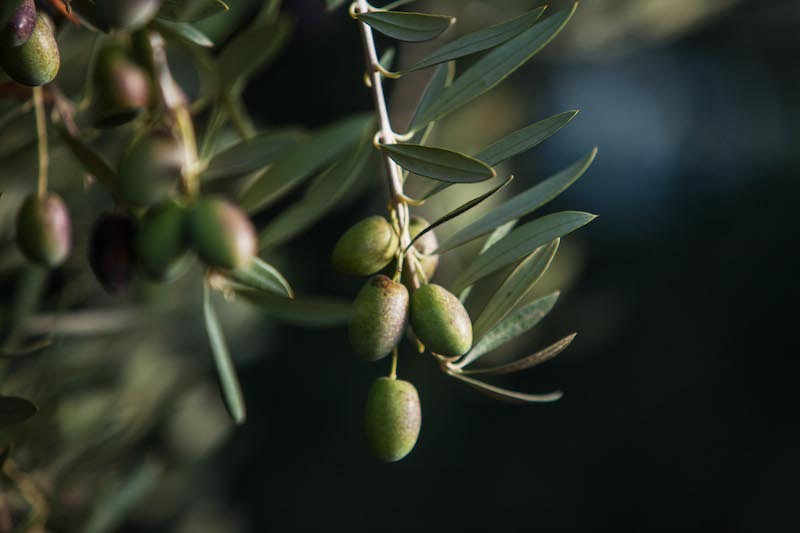
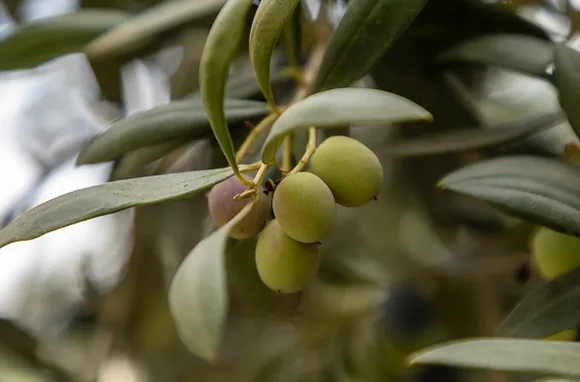
ARBEQUINA
Hailing from Catalonia, these Spanish olives are one of the most famous olive varieties in the world. Although they originate in Spain, Arbequina olives now grow throughout the world in places such as Australia, Argentina, Chile, Peru, and the United States. They are also one of the more unique-looking olives as they have a light-brown exterior color. In addition to their unusual appearance, they have firm flesh and a deliciously light and fruity taste. As the flavor is relatively mild, it’s better to use them as a table olive rather than as part of a dish.
FRANTOIO
A small-sized evergreen tree with glossy green leaves and a dense canopy in maturity. This tree produces large amounts of olive fruit, often used in olive oil production. This tree is known for growing in a tree shape. The bushy shapes of other olive varieties. can be used as a shading device or feature tree as well as for its fruit production. Prefer full sun, does best in milder climates. Grows well in coastal regions. Long periods of hot, dry conditions will encourage fruit production. Can be grown in pots. Can be pruned for size and shape maintenance. Tolerates some drought, some frost and coastal conditions. Hardy and low maintenance. Will attract wildlife.
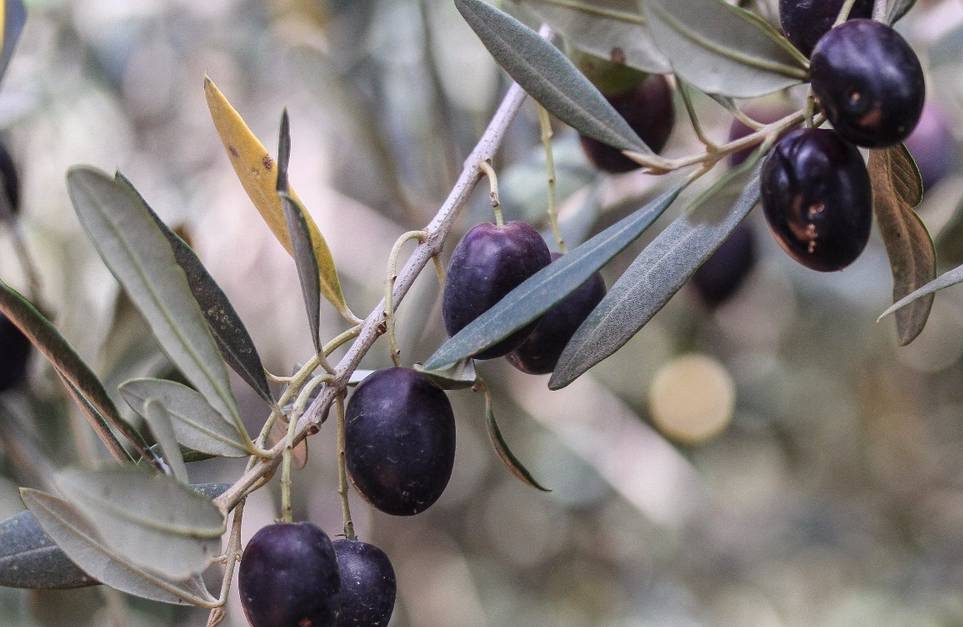
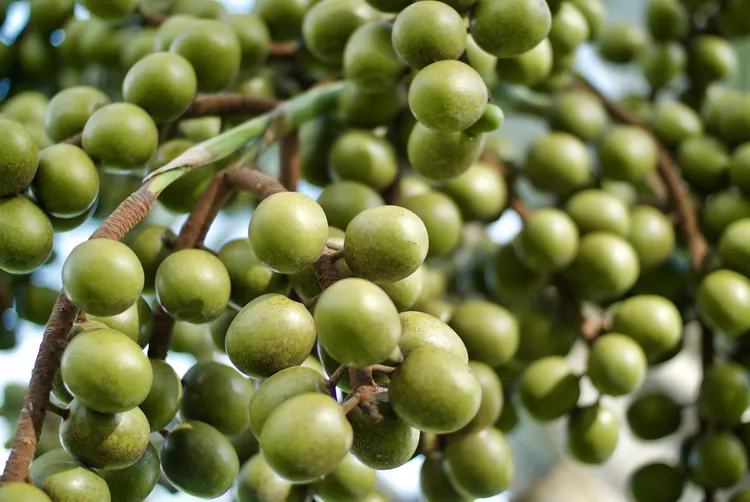
MANZANILLA
Originating from Sevilla, a city in the southern region of Andalusia, Spain, Manzanilla is one of the most famous types of olives in the world. For instance, if you have had store-bought green olives before, then you’ve almost certainly sampled a Manzanilla. In fact, they even have the alternate name of ‘green olive.’ Typically these Spanish olives are pitted, stuffed with pimento, and then packed in brine. One reason why they are so commonplace is the Spanish Manzanilla’s high fruit yield, which enables large-scale production. While the Manzanilla is a prevalent table olive, it is also one of the most common sources of oil.
PICUAL
Picual olives are rare to see in their whole-fruit form, but they are the most prominent source of olive oil in Spain. To put that into context, Spain is also the biggest producer in the world. Picual olives might be small in size, but they certainly have a deep flavor and offer equal parts of bitter, sweet, and peppery notes. These Spanish olives predominantly grow in the Jaen region of the country, located in the Southern part of the nation. The vast majority of Picual olives go toward olive oil production. The simple reason for this is that they provide a solid 20-27% oil by weight.
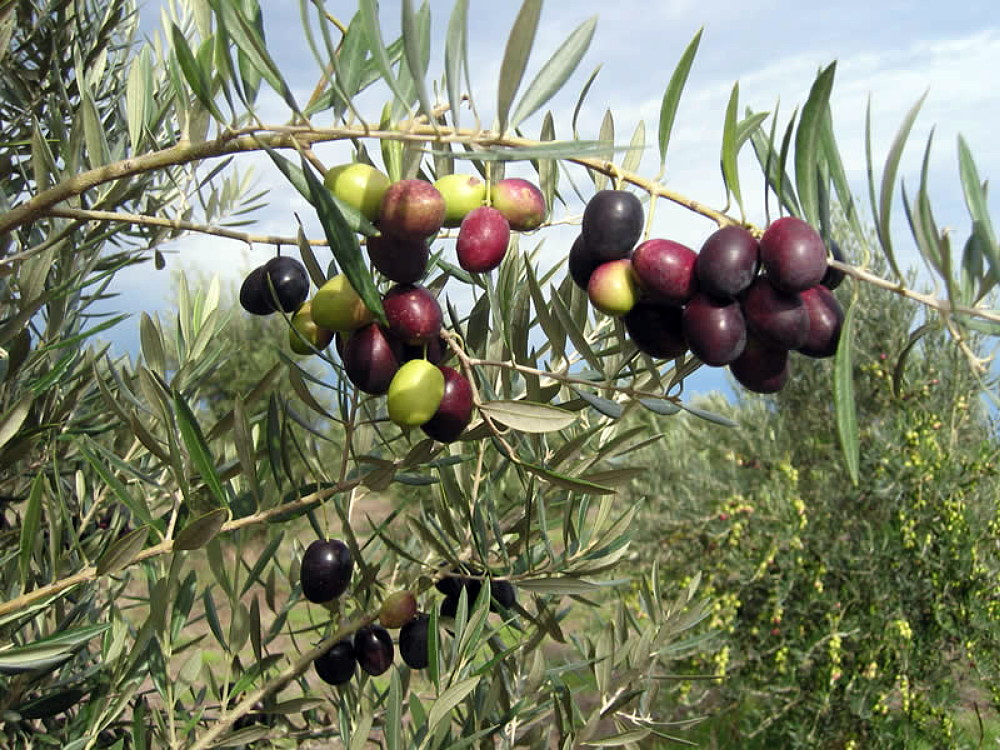
Extraction Process
Virgin olive oil which has a free acidity, expressed as oleic acid, of not more than 0.8 grams per 100 grams, and the other characteristics of which correspond to those fixed for this category in the IOC standard.








F.A.Q.
Why Olive Oil Should be in your daily meals.
Absolutely, Olive oil is the natural oil extracted from olives, the fruit of the olive tree.
About 14% of the oil is saturated fat, whereas 11% is polyunsaturated, such as omega-6 and omega-3 fatty acids.
But the predominant fatty acid in olive oil is a monounsaturated fat called oleic acid, making up 73% of the total oil content.
Studies suggest that oleic acid reduces inflammation and may even have beneficial effects on genes linked to cancer.
Monounsaturated fats are also quite resistant to high heat, making extra virgin olive oil a healthy choice for cooking.
Extra virgin olive oil is fairly nutritious.
Apart from its beneficial fatty acids, it contains modest amounts of vitamins E and K.
But olive oil is also loaded with powerful antioxidants.
These antioxidants are biologically active and may reduce your risk of chronic diseases.
They also fight inflammation and help protect your blood cholesterol from oxidation — two benefits that may lower your risk of heart disease.
Chronic inflammation is thought to be a leading driver of diseases, such as cancer, heart disease, metabolic syndrome, type 2 diabetes, Alzheimer’s, arthritis and even obesity.
Extra-virgin olive oil can reduce inflammation, which may be one of the main reasons for its health benefits.
The main anti-inflammatory effects are mediated by the antioxidants. Key among them is oleocanthal, which has been shown to work similarly to ibuprofen, an anti-inflammatory drug.
Some scientists estimate that the oleocanthal in 3.4 tablespoons (50 ml) of extra virgin olive oil has a similar effect as 10% of the adult dosage of ibuprofen.
Research also suggests that oleic acid, the main fatty acid in olive oil, can reduce levels of important inflammatory markers like C-reactive protein (CRP).
One study also showed that olive oil antioxidants can inhibit some genes and proteins that drive inflammation.
Stroke is caused by a disturbance of blood flow to your brain, either due to a blood clot or bleeding.
In developed nations, stroke is the second most common cause of death, right behind heart disease.
The relationship between olive oil and stroke risk has been studied extensively.
A large review of studies in 841,000 people found that olive oil was the only source of monounsaturated fat associated with a reduced risk of stroke and heart disease.
In another review in 140,000 participants, those who consumed olive oil were at a much lower risk of stroke than those who did not.
Heart disease is the most common cause of death in the world.
Observational studies conducted a few decades ago showed that heart disease is less common in Mediterranean countries.
This led to extensive research on the Mediterranean Diet, which has now been shown to significantly reduce heart disease risk.
Extra virgin olive oil is one of the key ingredients in this diet, protecting against heart disease in several ways.
It lowers inflammation, protects “bad” LDL cholesterol from oxidation, improves the lining of your blood vessels and may help prevent excessive blood clotting.
Interestingly, it has also been shown to lower blood pressure, which is one of the strongest risk factors for heart disease and premature death. In one study, olive oil reduced the need for blood pressure medication by 48%.
Dozens — if not hundreds — of studies indicate that extra virgin olive oil has powerful benefits for your heart.
If you have heart disease, a family history of heart disease or any other major risk factor, you may want to include plenty of extra virgin olive oil in your diet.
Eating excessive amounts of fat causes weight gain.
However, numerous studies have linked the Mediterranean diet, rich in olive oil, with favorable effects on body weight.
In a 30-month study in over 7,000 Spanish college students, consuming a lot of olive oil was not linked to increased weight.
Additionally, one three-year study in 187 participants found that a diet rich in olive oil was linked to increased levels of antioxidants in the blood, as well as weight loss.
